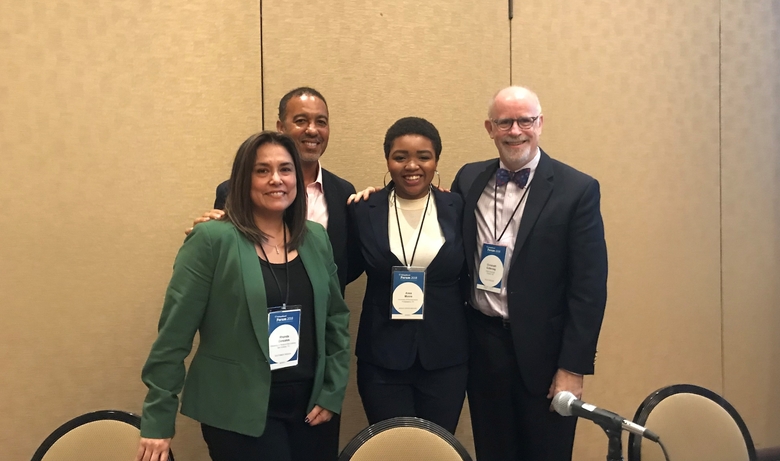Equity and Access
First-Generation College Students Success
Steve Bumbaugh, Senior Vice President of College and Career Access at the College Board, spoke at the 2018 Forum about the struggles he faced as a first-generation student
My grandmother completed a primary school education before emigrating from Jamaica to the United States. I always knew that I was meant to go further, to take advantage of the opportunity she helped create for me. But going to college as a first-generation student was still intimidating.
First-generation students can’t turn to a parent for detailed advice on navigating college, and they’re often encountering cultural and institutional hurdles that feel completely new.
Steve Bumbaugh, Senior Vice President of College and Career Access at the College Board, spoke at the 2018 Forum about the struggles he faced as a first-generation student. He recalled the stress of starting out in debt, the struggle to manage the basics like textbook costs, and figuring out where his meals would come from during school breaks. Even when schools have well-intentioned resources to address hardship, the social social stigma can dissuade some students from taking advantage of programs designed to help.

Student advocates like Anea Moore are working to end that stigma. A senior at the University of Pennsylvania, Moore pushed successfully for a cultural center focused on the needs of first-generation and low-income students on her campus. She and her peers have also pressed for increased financial aid and greater access to mental health care.
Other panelists pointed out that resources are only effective when students know about them, so additional investments have to be matched by awareness campaigns. Another new initiative at Penn offers an extra day of orientation to first-generation and low-income students. They learn about the support services available on campus and they have the chance to meet one another and build relationships.
That kind of community building is vital, panelists said. Dr. Rhonda Gonzales, Interim Vice President for Student Success and Associate Vice Provost for Strategic Initiatives at the University of Texas at San Antonio, said it would be great if incoming students could arrive on campus already familiar with some of the techniques for navigating college life.
"I have this dream where we have an army of first-gen peer mentors who are actually working in the high schools and middle schools so that they can be part of that bridge."
Dr. Rhonda Gonzales
The Dean of Admissions at Duke University, Christoph Guttentag, shared his vision for programmatic supports on-campus — programs like a pre-arrival summer orientation, funded study abroad opportunities, and a 9-semester financial aid model that would give students more time to balance coursework and extracurricular opportunities.
As universities work to recruit more talented students from first-generation backgrounds, rethinking support services and orientation programs will take on greater importance. The 2018 Forum offered some creative ways to get started.